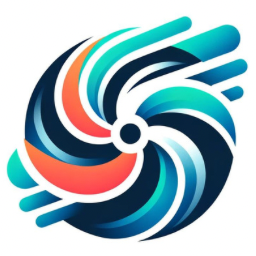Task organization is the key to unlocking a more productive and stress-free life. Whether you're trying to juggle daily chores or strategize for large-scale projects, the way you organize tasks can drastically alter your output and well-being. But how do you master task management to achieve peak productivity? In this guide, we explore proven strategies for organizing tasks, examine essential tools, and share expert tips to help transform your approach.
Understanding Task Organization
Task organization is more than just a systematic arrangement of duties; it's an art of bringing order to chaos. It simplifies task scheduling and time management, enhancing your ability to handle both professional and personal responsibilities. The benefits of well-organized tasks extend beyond productivity, fostering mental clarity and reducing stress. On the flip side, a lack of organization can lead to missed deadlines, heightened anxiety, and decreased efficiency as you scramble through uncoordinated activities.
Without an efficient system, you're likely to encounter a whirlwind of challenges, from struggling to prioritize tasks to managing unexpected interruptions. Recognizing these pitfalls is the first step toward building a robust framework for task organization.
Key Strategies for Effective Task Organization
Effective task organization begins with prioritization. One must distinguish between tasks that are urgent and those that are important. Urgency demands immediate attention, but don't let that overshadow important tasks that significantly impact your goals. Use prioritization methods to maintain a clear focus.
Breaking down larger tasks into manageable steps can also help reduce overwhelm. This method allows you to tackle projects bit by bit, maintaining consistent progress rather than succumbing to procrastination.
Time-blocking is another indispensable strategy for better focus and efficiency. By dedicating specific time slots to different tasks, you minimize multitasking and enhance concentration. Establish blocks for deep focus sessions and ensure regular breaks to maintain productivity.
Essential Tools for Task Organization
In today's digital age, there are a plethora of productivity tools designed to streamline workflow optimization. Tools like Trello and Asana offer comprehensive solutions for task tracking and project management. They allow seamless updates, collaboration, and milestone tracking, making them ideal for digital planners.
On the contrary, traditional tools like planners and bullet journals hold a certain charm. They provide a tactile experience that some find essential for daily task management. The key lies in selecting tools that align with your personal productivity style and task management system.
Your choice should depend on whether you thrive with digital planners' versatility or crave the simplicity of paper planners. Whichever path you choose, consistency is critical to developing efficient task management.
Creating a Personalized Task Organization System
Every individual’s approach to task organization differs. Understanding personal productivity styles can help you craft a system tailored to your tendencies. Start by setting realistic goals and deadlines management to ensure that your targets are both achievable and inspiring.
Regular reviews and adjustments are vital in maintaining an effective task organization routine. Reflect on what works, what doesn't, and be adaptable to change. This constant evaluation aids in personal organization and ensures your system evolves as your needs change.
Overcoming Common Obstacles
Procrastination is perhaps the most common hurdle in task management. Implementing procrastination solutions, like setting smaller, actionable goals can help maintain momentum. Use commitment devices or accountability techniques to ensure you stay on track.
Life is unpredictable, and the ability to adapt to changes and unexpected interruptions is an essential part of systematic organization. Agile task management methods can offer the flexibility needed to pivot without losing sight of your goals.
Motivation techniques, such as rewarding yourself for completing tasks or maintaining a list of completed goals, can boost morale and make task organization less of a chore and more of a rewarding experience.
Conclusion
Transforming task organization from a mundane duty into an art form can revolutionize your daily activities and project handling. By prioritizing tasks, employing effective tools, and customizing your task management system, you lay a foundation for increased productivity and reduced stress. Start today by implementing these strategies, and watch as you master task organization, achieving new heights of efficiency and fulfillment.
Ready to take control of your tasks and enhance your workflow management? Apply these techniques and explore new productivity software to find what best suits your style. With time, you'll discover not just improvements in productivity, but also a newfound sense of balance in both personal and professional life.



